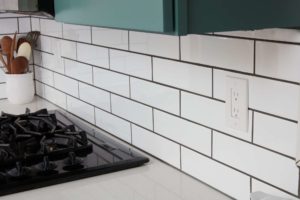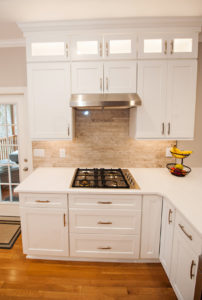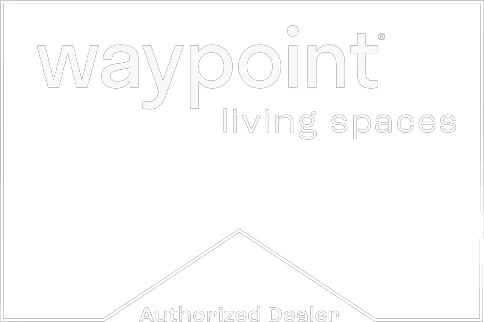
A backsplash is a horizontal wall covering located just behind a stovetop, sink, or other countertop surface. Its purpose is to protect the wall from splatters and spills. If you’re wondering about whether or not you need to seal your kitchen backsplash, you’re not alone. Many people have this question, but the answer isn’t always clear. In this blog post, we’ll explore the pros and cons of sealing a kitchen backsplash, so you can make an informed decision for your own home.
Common Kitchen Backsplash Materials
 There are a variety of kitchen backsplash materials available on the market, each with its own benefits and drawbacks. Here is a quick overview of some of the most common kitchen backsplash materials:
There are a variety of kitchen backsplash materials available on the market, each with its own benefits and drawbacks. Here is a quick overview of some of the most common kitchen backsplash materials:
- Glass: Glass backsplashes are heat-resistant and easy to clean, but they can be pricier than other options.
- Tile: Tile backsplashes come in a wide range of colors and designs, making them a versatile option. They can be more difficult to install than other types of backsplashes, however.
- Stainless steel: Stainless steel backsplashes are durable and low-maintenance, but they may show fingerprints and smudges more easily than other options.
- Stone: Stone backsplashes add a natural element to kitchen design, but they require regular sealing and may be more difficult to install than other types of backsplashes.
- Ceramic: Ceramic tile is a popular choice for kitchen backsplashes because it’s durable and easy to clean. However, ceramic tile can be prone to cracking and chips, so it’s important to carefully select a high-quality product
When choosing a kitchen backsplash material, it’s important to consider your lifestyle and budget. If you’re looking for a low-maintenance option that will stand up to wear and tear, metal or ceramic tile may be the best choice. If you want a beautiful kitchen backsplash that will last for years to come, stone may be the best option. However, if you’re working with a limited budget, glass or ceramic tile may be the best choice.
Sealing a Kitchen Backsplash
If you’re planning to install a kitchen backsplash, you may be wondering if you need to seal it. While most kitchen backsplashes don’t require sealing, some materials (like natural stone) may benefit from it. When you seal your kitchen backsplash, it also may extend the life of the backsplash itself.
 First of all, sealed surfaces are easier to keep clean. If your backsplash is exposed to grease, grime, and food splatters, sealing it will make it much easier to wipe clean.
First of all, sealed surfaces are easier to keep clean. If your backsplash is exposed to grease, grime, and food splatters, sealing it will make it much easier to wipe clean.
In addition, sealed backsplashes are less likely to stain. If you opt not to seal your backsplash, be sure to choose a material that is highly resistant to staining, such as glass or ceramic tile.
Finally, sealed backsplashes have a more finished look. If you want your kitchen to have a polished, professional appearance, sealing the backsplash is a good way to achieve that.
If you choose to seal your backsplash, be sure to use a high-quality sealer designed for kitchen use.
While you can hire a professional to do the job for you, it’s actually not that difficult to seal a backsplash on your own. Here are the steps you’ll need to take:
- Clean the backsplash thoroughly with soap and water. Be sure to remove any grease or food residue.
- Apply a bead of silicone caulk around the edges of the backsplash.
- Use a damp cloth to smooth out the caulk and remove any excess.
- Allow the caulk to dry for 24 hours before using the backsplash.
With just a few simple steps, you can seal your kitchen backsplash and keep it looking good for years to come!
 Cleaning your Kitchen Backsplash
Cleaning your Kitchen Backsplash
Every kitchen has a backsplash, and keeping it clean is an important part of kitchen maintenance. Backsplashes are exposed to splatters and spills from cooking, and if they are not cleaned on a regular basis, they can become stained and difficult to clean. In addition, food particles can become trapped in the grout, attracting insects and creating an unsanitary kitchen environment.
To clean your backsplash, start by wiping down the backsplash with a damp cloth to remove any loose dirt or debris. Next, mix up a solution of mild dish soap and warm water. Using a soft sponge, gently scrub the backsplash with the soapy water, taking care to avoid any harsh scrubbing or scratching. If stubborn stains remain, you can try using a gentle all-purpose cleaner or white vinegar. Once the backsplash is clean, rinse it thoroughly with warm water and dry it with a soft cloth. For an extra sparkle, you can even buff it with a dryer sheet. With just a little bit of effort, you can keep your kitchen backsplash looking brand new.
Fall in Love With Your Kitchen Again
Kitchen backsplashes are a great way to add personality and style to your kitchen. They can also be sealed and made easy to clean, making them a practical addition as well. With all the different materials available, there’s sure to be a backsplash that fits both your needs and your style perfectly. So if you’re looking for an upgrade or simply want more information about backsplashes, contact Kitchen Express today. We’ll be happy to help you fall in love with your kitchen again.
Contact Kitchen Express Today


